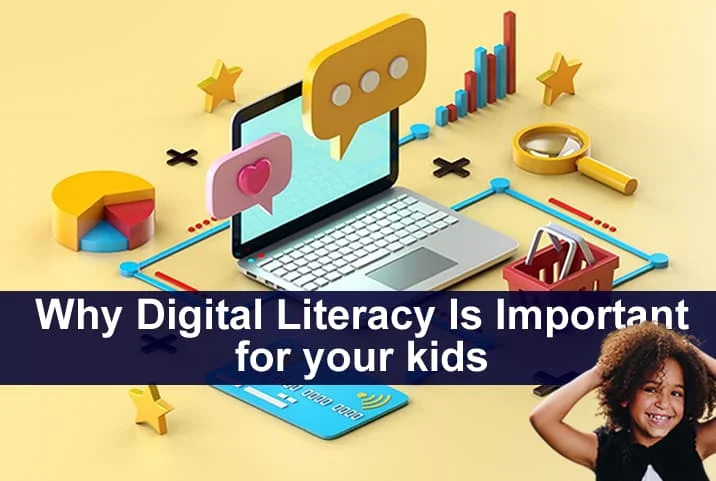Digital literacy is becoming essential in today’s world, as individuals need the right tools and knowledge to navigate the digital economy. In Africa, digital literacy skills are critical for accessing opportunities in education, entrepreneurship, and employment. With smartphones becoming more affordable and internet penetration improving, digital literacy apps are transforming how people acquire essential tech skills across the continent. Below, we explore the best apps helping Africans improve their digital literacy and stay competitive in the global economy.
What Is Digital Literacy?
Digital literacy goes beyond basic computer knowledge. It includes the ability to access, analyze, communicate, and create digital content responsibly. From using search engines effectively to mastering coding skills and online collaboration tools, digital literacy ensures people can thrive in an increasingly digital world. In Africa, the rise of e-learning platforms and skill-enhancement apps is playing a pivotal role in closing the digital skills gap.
Top Digital Literacy Apps Empowering Africans
1. LearnApp Africa
LearnApp Africa provides a range of digital literacy courses tailored for students, professionals, and entrepreneurs. It covers essential topics such as email communication, Microsoft Office tools, internet safety, and more.
- Focus Areas: Computer literacy, online safety, and communication skills
- Features: Interactive lessons, assessments, and certifications
- Accessibility: Free with optional paid content
2. Duolingo
Although best known for language learning, Duolingo plays a role in digital literacy by introducing learners to gamified content. By encouraging consistent learning habits and teaching users how to access resources online, the app helps users become comfortable with digital platforms.
- Focus Areas: Language learning, gamified digital engagement
- Features: Bite-sized lessons and progress tracking
- Accessibility: Free with ads, premium option available
3. Khan Academy
Khan Academy offers free educational resources for students of all ages. While the app primarily focuses on academic subjects, it also provides content on programming, mathematics, and online research skills—essential components of digital literacy.
- Focus Areas: Programming, critical thinking, and research skills
- Features: Video tutorials, quizzes, and personalized learning paths
- Accessibility: Completely free
4. Scratch by MIT
Scratch is an app that teaches young learners the basics of coding through visual programming. It empowers children and beginners to create their own digital projects, fostering creativity and logical thinking skills needed in the tech world.
- Focus Areas: Coding, problem-solving, and design thinking
- Features: Drag-and-drop interface for building interactive stories
- Accessibility: Free and beginner-friendly
Why Digital Literacy Matters in Africa
As Africa undergoes rapid digital transformation, digital literacy becomes a key enabler of social and economic growth. Here’s how these skills are changing lives across the continent:
- Education: With more students using e-learning platforms, digital literacy ensures they can access, understand, and benefit from online educational content.
- Employment: Many African businesses now operate online or require employees with basic computer skills and digital competence.
- Entrepreneurship: Digital tools empower entrepreneurs to market products, manage finances, and connect with customers globally.
- Inclusion: Digital literacy promotes social inclusion by bridging the information gap and ensuring people can access government services online.
Digital Literacy Apps for Specialized Skills
5. LinkedIn Learning
LinkedIn Learning offers courses on professional development and digital skills that are relevant for job seekers and professionals in Africa. Users can learn about digital marketing, software development, data analysis, and more.
- Focus Areas: Professional and technical skills
- Features: Video tutorials, quizzes, and downloadable certificates
- Accessibility: Subscription-based, with free trials available
6. Coursera
Coursera partners with universities to offer courses in digital literacy, data science, and computer science. African students can earn industry-recognized certificates to boost their credentials.
- Focus Areas: Advanced tech skills, programming, and digital research
- Features: Flexible learning schedules and certifications
- Accessibility: Free courses with paid certificates
7. Toggl
Toggl is a time management app that helps users learn how to manage digital tools effectively. It promotes productivity skills, an essential aspect of digital literacy.
- Focus Areas: Time management and productivity
- Features: Time tracking, reports, and performance insights
- Accessibility: Free with premium options
How to Get the Most from Digital Literacy Apps
Here are tips to ensure that users maximize their learning experience through digital literacy apps:
- Set Learning Goals: Define what you want to achieve and track your progress regularly.
- Engage Actively: Participate in quizzes, challenges, or community discussions to deepen your understanding.
- Practice Regularly: Reinforce your skills by applying them in real-world scenarios or projects.
- Explore New Tools: Stay updated with the latest software and platforms that can improve your productivity.
- Earn Certifications: Many apps offer certificates that boost your employability—be sure to complete these programs.
The Future of Digital Literacy in Africa
Digital literacy apps are not just tools for personal improvement; they are critical drivers of Africa’s digital economy. As mobile connectivity expands and more people gain access to smartphones, digital skills will play a more prominent role in education, employment, and social inclusion. Governments, educational institutions, and NGOs are also increasingly collaborating to promote digital literacy and create a digitally inclusive society.
With the growing demand for remote work, e-commerce, and digital services, the need for digital literacy will only increase. By equipping individuals with these skills, Africa is well-positioned to leapfrog into the future, fostering innovation and creating opportunities for millions of people across the continent.
Conclusion
In Africa, digital literacy apps are changing how people learn and work. From Scratch and Duolingo to advanced platforms like LinkedIn Learning and Coursera, these apps provide users with the skills needed to thrive in today’s digital landscape. Digital literacy is not just a trend—it is a necessity for participating in the modern economy. As more Africans embrace these learning tools, the continent will unlock new possibilities in education, entrepreneurship, and employment.




















